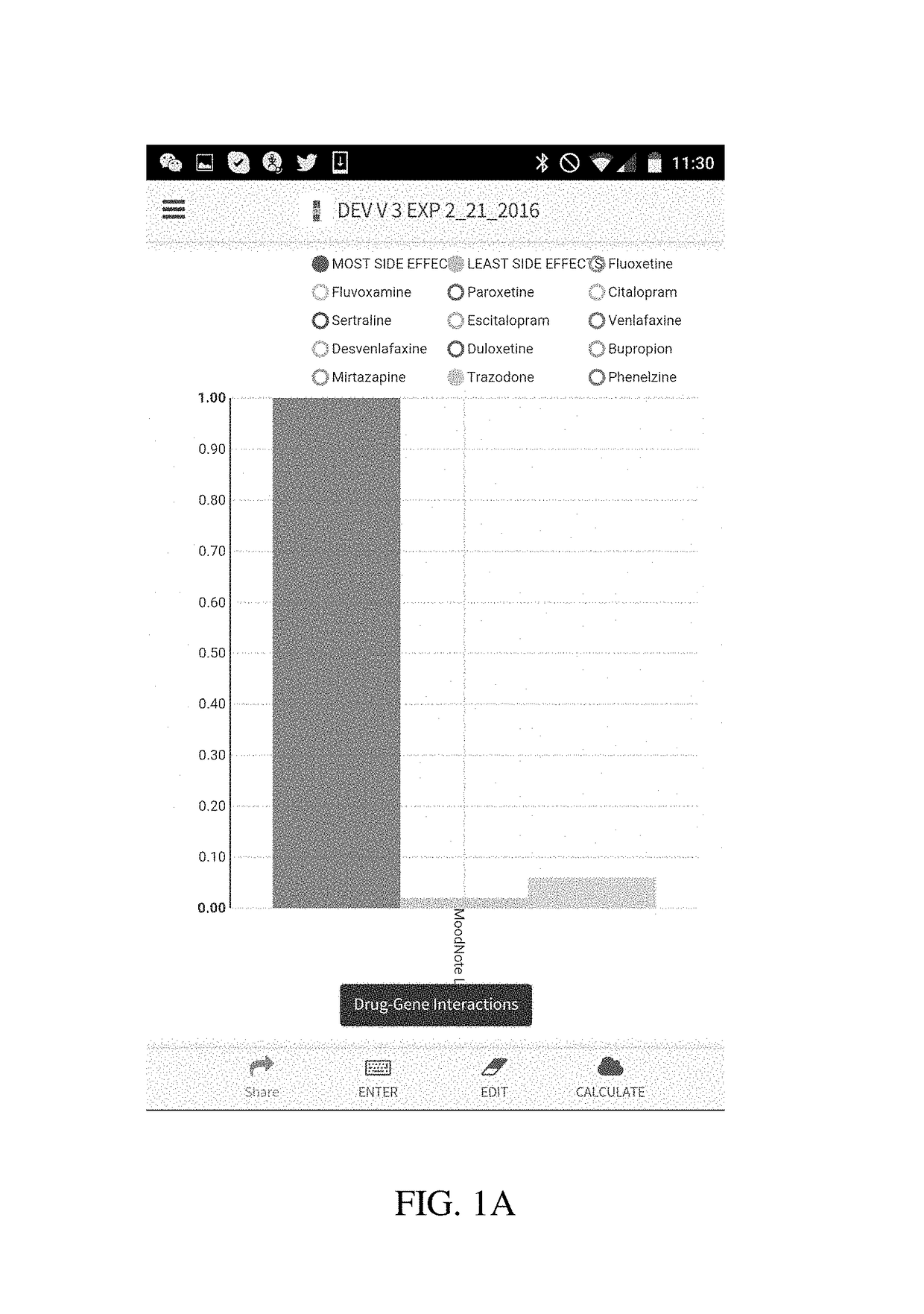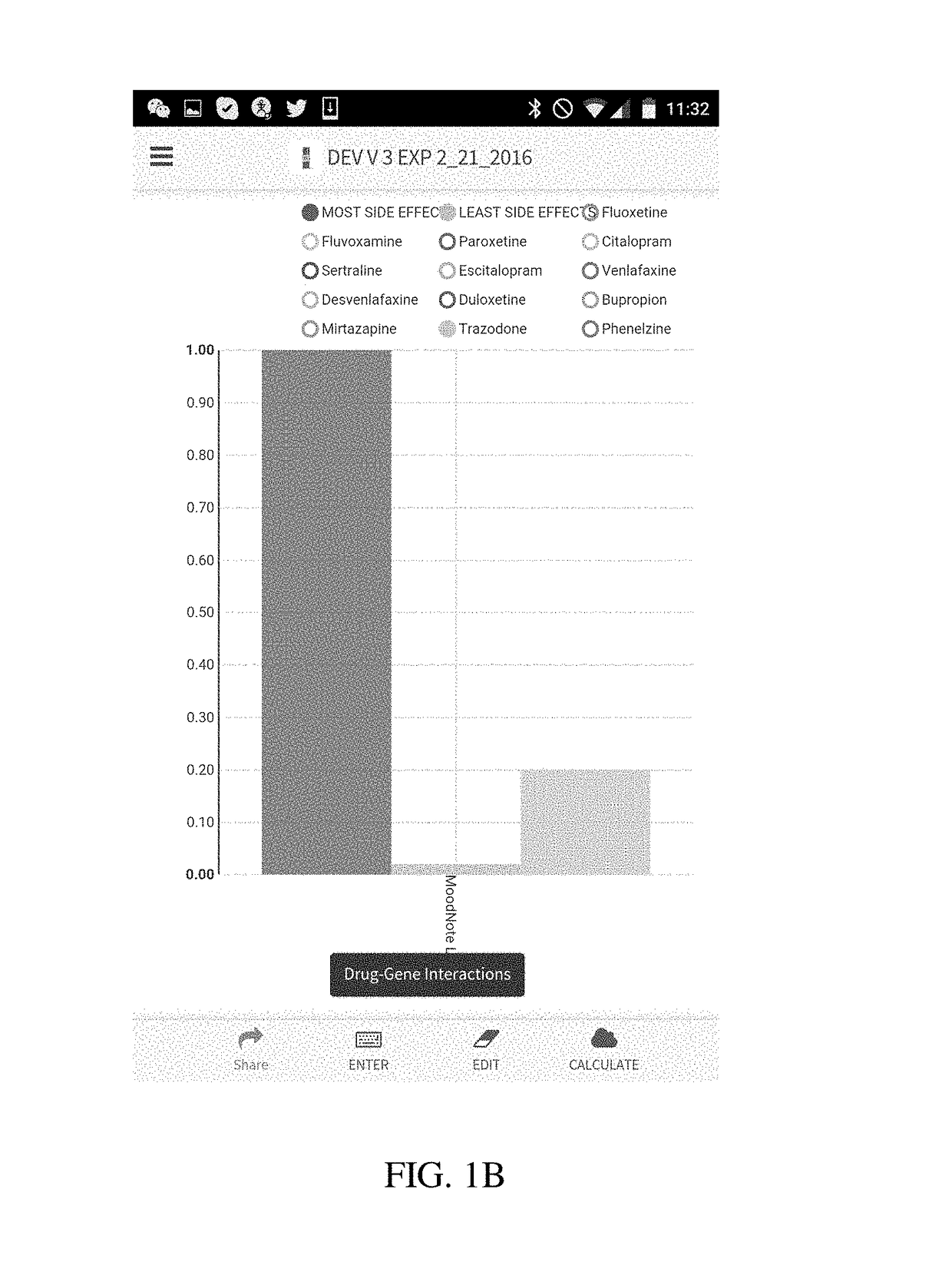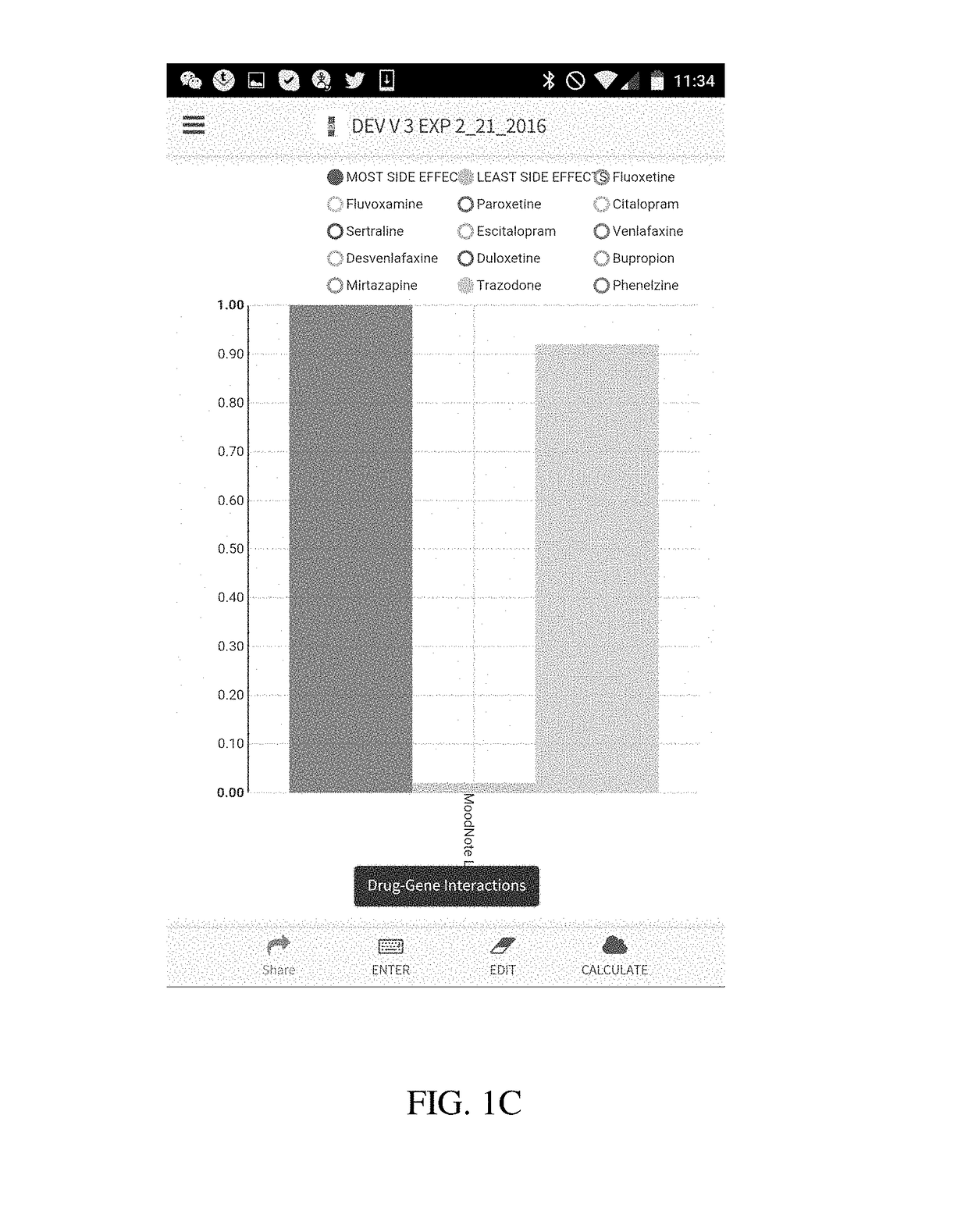Method and system for calculation and graphical presentation of drug-drug or drug-biological process interactions on a smart phone, tablet or computer
a technology of biological process and drug-drug interaction, applied in the field of methods and systems of pharmacogenomic data analysis and visualization, can solve the problems of slow implementation of pgx into clinical practice, inability to meaningfully integrate into clinical decision making, and inability to achieve meaningful integration of human mind
- Summary
- Abstract
- Description
- Claims
- Application Information
AI Technical Summary
Benefits of technology
Problems solved by technology
Method used
Image
Examples
Embodiment Construction
[0029]The present disclosure is directed to a method of using a computer to conduct pharmacogenetic data analysis and present results of this analysis to an interested party (e.g., a physician, a researcher, dentist or a patient) in a visual graphic format. The method and system of the present disclosure is based on entering the patient's genetic variation, mutation, polymorphism, phenotypic, transcription or other data that are known to affect a biological function, elimination, distribution or binding to a receptor of a drug or a nutraceutical into a computer. In various embodiments of the invention the entry of these data can be done in a number of ways comprising a manual entry, a direct transfer from another computer or a server, reading of a bar code, or any other similar data entry method. In another embodiment, these data are stored locked on a memory chip or transferred from one user to another.
[0030]Upon receiving genetic data, the computer processor executes a code that c...
PUM
 Login to View More
Login to View More Abstract
Description
Claims
Application Information
 Login to View More
Login to View More - R&D
- Intellectual Property
- Life Sciences
- Materials
- Tech Scout
- Unparalleled Data Quality
- Higher Quality Content
- 60% Fewer Hallucinations
Browse by: Latest US Patents, China's latest patents, Technical Efficacy Thesaurus, Application Domain, Technology Topic, Popular Technical Reports.
© 2025 PatSnap. All rights reserved.Legal|Privacy policy|Modern Slavery Act Transparency Statement|Sitemap|About US| Contact US: help@patsnap.com



